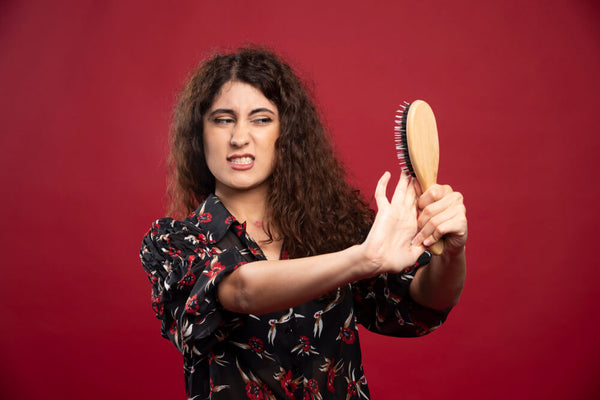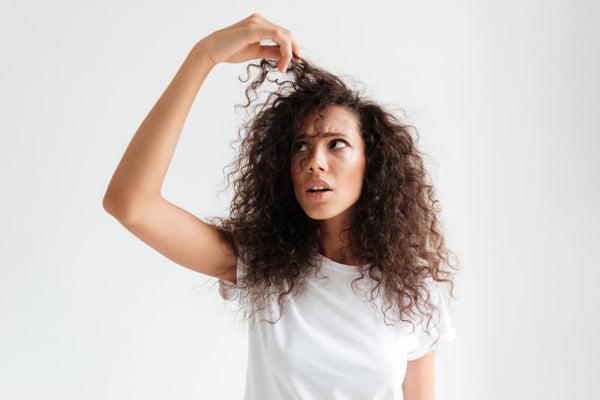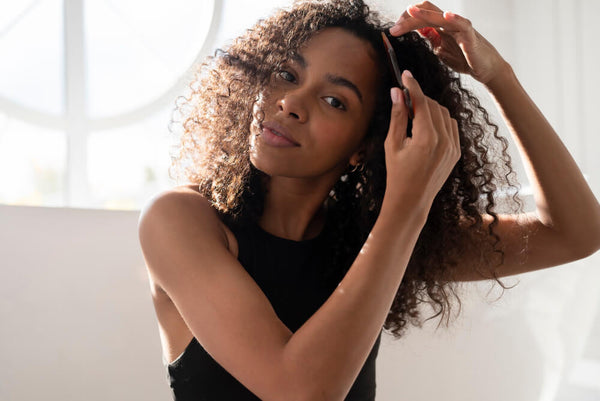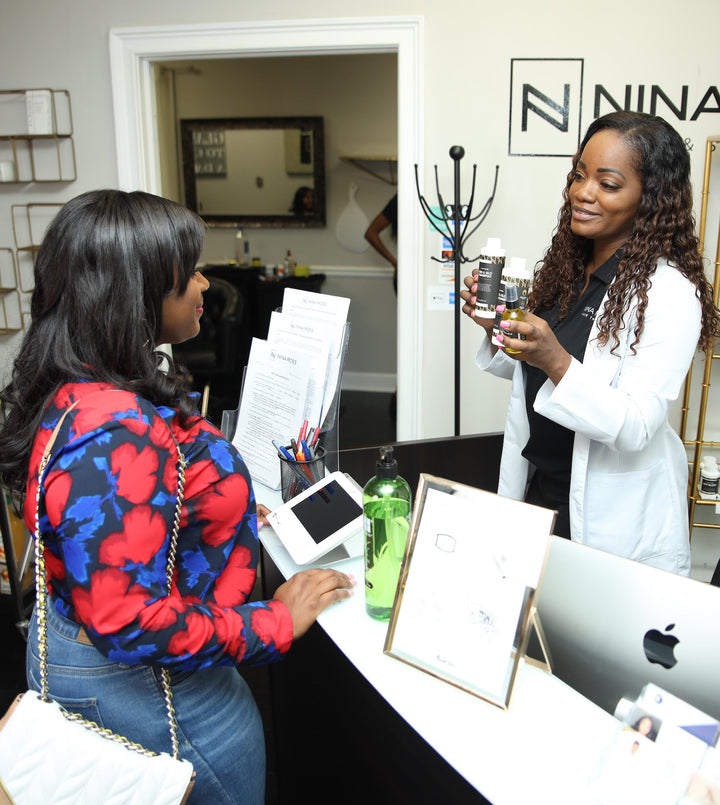Let me take you back to my own postpartum journey for a second. There I was, four months after having my second baby, standing in the shower watching what looked like a small animal circling the drain. My temples were getting sparse, my part was widening, and I was genuinely terrified I'd be bald by my daughter's first birthday.
Here's what I wish someone had told me then: You're not going bald. Your body is actually working exactly as it's supposed to—it's just doing it in the most dramatic way possible.
If you're in the thick of that terrifying shed right now, take a deep breath. Let's walk through what's actually happening and how to come out the other side with your hair—and your sanity—intact.
What's REALLY Causing This Nightmare Shed?
During pregnancy, high estrogen levels put your hair follicles on pause. Normally, you shed about 100 hairs daily, but when you're pregnant, those hairs just... stick around. That's why many women have their best hair ever during pregnancy.
Then you have the baby. Estrogen crashes. All those hairs that were supposed to shed over the past nine months decide to leave the party at once. It's not that you're losing more hair than normal—you're just losing all the hair you should have lost over many months in a matter of weeks.
The shed usually hits hardest around 3-4 months postpartum, just when you're already exhausted, overwhelmed, and barely recognizing your body. It's the universe's cruel timing.
Hair Loss During Pregnancy

The 5 Things Nobody Tells You About Postpartum Hair Loss
1. It Hits Black Women Differently
Our tighter curl patterns mean the shed hairs often get trapped in our curls instead of falling out naturally. Then when we wash or detangle, it looks like we're losing twice as much. It's not more hair loss—it's just more visible hair loss.
2. Breastfeeding Doesn't Always Delay It
Some women hold onto their pregnancy hair while nursing, but many don't. If you're shedding while breastfeeding, you're not doing anything wrong—your body just has its own timeline.
3. The Regrowth Phase is Awkward
When your hair starts growing back around 6-12 months postpartum, you get what I call the "mom fringe"—those stubborn baby hairs that stick straight up around your hairline. It's a good sign, but my goodness, it tests your styling creativity.
4. Your Old Hair Might Not Come Back
Postpartum can permanently change your hair texture. Straight hair might come back wavy, or your curls might loosen. It's your body's weird way of reminding you that motherhood changes everything.
5. Stress Makes It Worse
I know—hearing "just relax" when you have a newborn is laughable. But the cortisol from sleepless nights and new-mom anxiety can extend the shedding phase. It's not your fault, but it is something we can address.
What Is Postpartum Hair Loss?

What Actually Helps (Beyond "Just Wait It Out")
While time is the ultimate cure, there are ways to support your hair through this transition:
-
Handle With Care:
Switch to loose styles—this isn't the season for tight braids or ponytails. Also use a silk pillowcase and bonnet to reduce friction and breakage. In addition to that, detangle your hair gently with wide-tooth combs and start from the ends.
-
Nourish From Within:
Keep taking your prenatal vitamins, but know they might not be enough. Many new moms develop deficiencies in iron (from blood loss during delivery), vitamin D (from being indoors with baby) and also B vitamins (from the metabolic demands of breastfeeding).
This is why we often recommend specific testing and targeted supplements in our practice.
-
Scalp Care Matters:
A gentle, stimulating scalp massage can increase blood flow to those dormant follicles. We teach this to all our postpartum clients because it's something you can do while watching TV during those late-night feeds.
When It's Time to Worry (And Come See Us)
Most postpartum shedding resolves within 6-12 months. But come see us if:
-
You're seeing actual bald patches (not just thinning).
-
The shedding continues past your baby's first birthday.
-
You had hair loss issues before pregnancy that have worsened.
-
You're also experiencing other symptoms like extreme fatigue, weight changes, or mood swings.
Sometimes what looks like postpartum hair loss is actually thyroid issues, anemia or autoimmune issues that your pregnancy triggers at times.
Our Postpartum Hair Recovery Approach
When new moms come to our Atlanta clinic, we don't just tell them to wait it out. We:
-
Run labs to check for nutrient deficiencies and thyroid function
-
Create personalized supplement plans for them
-
Use PRP therapy to stimulate faster regrowth in areas where hair growth is needed.
Need More Than "Wait and See"?
If you struggle with postpartum hair loss and want actual solutions beyond vague advice, book your Hair Therapy Evaluation with us for just $99 and we’ll sure there's nothing else going on and get you on the path to recovery right away.















